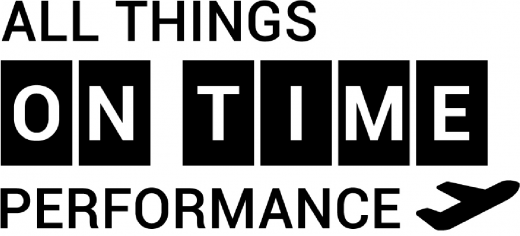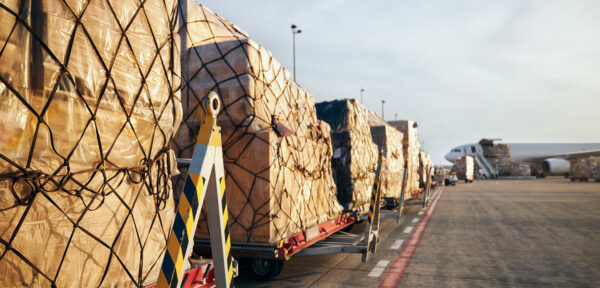New Challenges in the Months Ahead
Air Cargo Should Be Prepared
While the fourth quarter of 2021 reflects significant strides by the aviation industry, the International Air Cargo Association (TIACA) has issued a warning to the airlines to expect unprecedented challenges. TIACA cited challenges ahead for the air cargo sector all stemming from supply chain issues.
For the air cargo industry, the high demand for personal protective equipment, e-commerce, vaccines, perishables, and other vital cargo stemming from market volatility related to the pandemic, imposed capacity withdrawals and shortfalls. Additionally, it faced quarantine restrictions, further leading to disruptions in crew and staff travel and work schedules. The maritime industry too had its share of challenges as it continued to grapple with increasing port congestion, hinterland transfer delays, blank sailings, and higher shipping costs. This, in turn, prompted many shippers to turn to air cargo transportation in order to meet their customers’ demands.
In anticipation of fourth quarter needs driven by annual online shopping activity, TIACA is urging the industry to start planning ahead. It is urging governments to fast-track ad hoc charter permits, as well as to give consideration to seventh freedom regimes where they are being implemented. The organization also noted that COVID-19 worker restrictions, as imposed in China, are not expected to be lifted during this period. Additionally, higher domestic passenger travel demand in certain markets will prompt the reassigning of aircraft which will introduce further operational challenges as freighter network are already operating at unprecedented utilization levels.
Source: https://www.internationalairportreview.com/news/164372/tiaca-air-cargo-demand-challenges/
Focus on Sustainable Aviation Fuels (SAF) for Clean Skies Tomorrow
Sixty prominent companies in the World Economic Forum’s Clean Skies for Tomorrow Coalition announced a major milestone in the mission to achieve net-zero emission by 2050 – their joining forces to empower global aviation with 10% sustainable aviation fuel (SAF) by 2030. The Coalition, whose mission is to accelerate the deployment of SAF, noted that this goal can only be reached by working together noting that the aviation industry is a “hard to abate” sector when it comes to reducing Green House Gas (GHG) emissions. Coalition members include companies from a broad cross-section of industries. In addition to airlines and airports, there are global leaders in accounting, business consulting, energy, engineering, financial services, fuel, information technology and other non-aviation businesses.
“Achieving our ambition will require commitment, innovation and cross-industry collaboration from a wide range of stakeholders,” said Lauren Uppink Calderwood, Head of Aviation, Travel and Tourism at the World Economic Forum. “We are calling on governments, international organization and others to work with us to take important steps through new policies, targeted investments and regulations that create a level playing field while incentivizing transformation.” This position aligns with that of the UN High Level Climate Champions’ 2030 Breakthrough Outcome for aviation and its over 30 near-term targets for different sectors seen as critical to achieving a 50% emissions reduction by 2030 in keeping with the Paris Agreement.
SAF is fully-compatible with today’s aircraft and considered to be a viable solution in the aviation industry’s transition to more sustainable operations achieved through the production of sustainable low-carbon aviation fuels (bio and synthetic).
Asia Threatens Retaliation in Response to EU’s Tougher Airport Slot Rules
The European Union’s (EU) new airport take-off and landing slot rules requiring carriers to use 50% of their slots from October has Asian regulators in key markets ready to retaliate. Regulators in Singapore and Hong Kong have threatened to impose similar requirements for EU carriers flying into Asian cities. Some are already talking about possible trade wars.
Peter Harbison, chairman emeritus of the Sydney-based CAPA Centre for Aviation consultancy and a former Australian aviation negotiator said, “Is it a trade war? Certainly, the germ of one. And it will be accentuated as more airlines collapse and international markets remain closed, or at best, uncertain.”
When first announced in July, the EU’s new airport slot rules reinstated competition rules, in part, which had been waived to help airlines survive the pandemic. Now, as the industry starts to recover, particularly in Europe’s short-haul market, the move is making it difficult for Asian carriers since the recovery of their long-haul networks will take much longer.
As a result of the EU’s new slot rules, Singapore has lined up previously unreported “reciprocity” rules intended to ensure fair treatment. Currently, long quarantines persist in Asia with airlines having operated at just 14% of their 2019 levels in July 2021. This is considerably lower than levels of 46% and 48% for those achieved in Europe and North America, respectively, based on data from the International Air Transport Association (IATA).
Will 2022 Be the Year of Revenge Travel?
Some had anticipated that the summer of 2021 would see a lot of “revenge travel,” a concept created to describe a traveler’s response to the post-pandemic environment where national lockdowns and other restrictions subsided. However, with pandemic concerns still prevalent, longer, more extravagant trips were largely postponed. The question is then will 2022 be the year of revenge travel?
According to the GlobalData Q2 2021 consumer survey, 58% of survey respondents cited quarantine requirements as the main deterrent for international travel, while 55% cited travel restrictions, 50% cited fear of contracting the virus. To assuage those obstacles, many regions are reducing their entry travel requirements for fully-vaccinated individuals. For example, the United Kingdom is looking to eliminate its traffic light system.
With that said, travel agencies are starting to note record bookings for long-haul getaways to take place in the summer of 2022. The airlines too are responding to the higher passenger demand for next summer by launching more long-haul routes. Among those airlines are United Airlines and Delta, both of which have more long-haul routes across Europe and the Asia-Pacific region.





0 comments on “Aviation Wrap-Up September 2021”